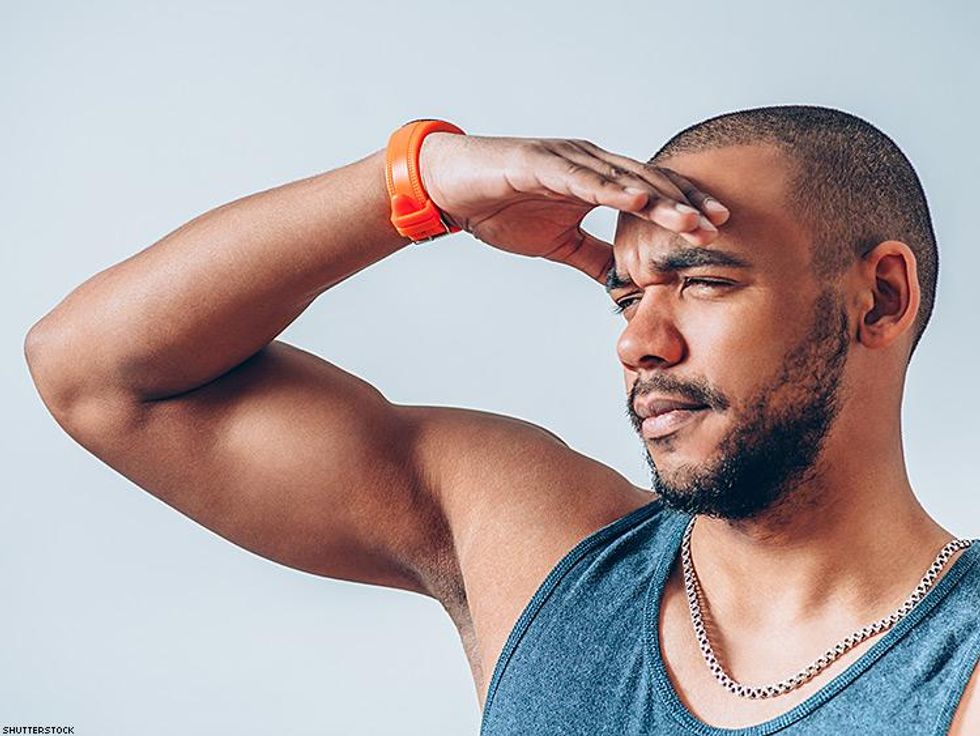
A guide to talking to your HIV-positive friend without being a jerk.
October 22 2015 1:46 PM EST
By continuing to use our site, you agree to our Privacy Policy and Terms of Use.

A guide to talking to your HIV-positive friend without being a jerk.
With HIV diagnoses up by 132.5 percent among young gay and bisexual men since the 21st century began, it has never been more evident that conversations about HIV among young people are painfully needed. And the best way for these discussions to begin is by empowering newly HIV-positive folks to use their voices to bring awareness to the communities they occupy. This, however, is easier said than done for many living with the virus due to the fear of being stigmatized for being HIV-positive by their family and friends. In order to foster an environment where people living with HIV feel comfortable talking about their experiences, here is a list of things you should never say to someone with HIV, and some helpful alternatives you may want to ask.

This type of question is exactly the reason why people are afraid to talk about HIV in the first place. HIV isn't a punishment and no one deserves to contract it. So quit talking about it like it is a consequence of being a bad person.

This will give your friend the opportunity to elaborate on the feelings he or she is going through. This is your opportunity to learn how they are dealing with the shame and self-stigma that they might be experiencing. This is also where you can learn how to affirm your friend in the way he or she needs at that time.

Chances are they got it from someone they had sex with ... duh. Don't be rude by asking a person who is opening up to you about details that they may or may not be sure of. Instead, ask them how they are feeling. If your friend is comfortable talking about the details of transmission, they will bring it up on their own.
Do Ask: How long have you been dealing with this?
This provides a chance for you to learn how long your friend has been living with HIV without any support. Try following up with questions about who else he or she has confided in so you can possibly help with facilitating more opportunities for your friend to disclose their status in a safe and stigma-free environment.

Although you may be surprised, this is irrelevant to the conversation. Your friend is revealing his or her status, but it is not his or her place to reveal someone else's. Don't put them in an awkward situation of having to disclose their partner's status if they aren't comfortable doing so.
Do Ask: How are you protecting yourself from transmitting?
It is OK to be concerned about the health and safety of your friend, and that includes his or her risk of transmitting the virus to someone else. But make sure you do so in a way that doesn't assume that they aren't being safe. This question will give your friend the opportunity to share with you their safe sex practices and will allow you to lend your insight to the conversation without a judgmental tone.
Don't Ask: Will you get AIDS?
Chances are, your friend will not be diagnosed with AIDS, which is merely a term used to classify the advanced stages of HIV. The term "AIDS" was created when HIV medications where not as effective as they are now. When a person's T-cell count would dip below 200, they would receive an AIDS diagnosis, which meant that their body's immune system was now vulnerable to opportunistic infections that could be fatal. The management of HIV has drastically changed since these days of AIDS, so you can wipe the term from your vocabulary.
Do Ask: How are you doing with your treatment?
A person who is diagnosed with HIV today can now expect to live a normal lifespan, but only if they enter treatment and stay on their medication. Unfortunately, only 30 percent of people living with HIV are properly managing their health, which often means as little as quarterly doctor's visits and taking one pill a day. Make sure your friend is taking care of himself or herself properly and encourage them to invest in their health if they need it.

Charlie Kirk DID say stoning gay people was the 'perfect law' — and these other heinous quotes